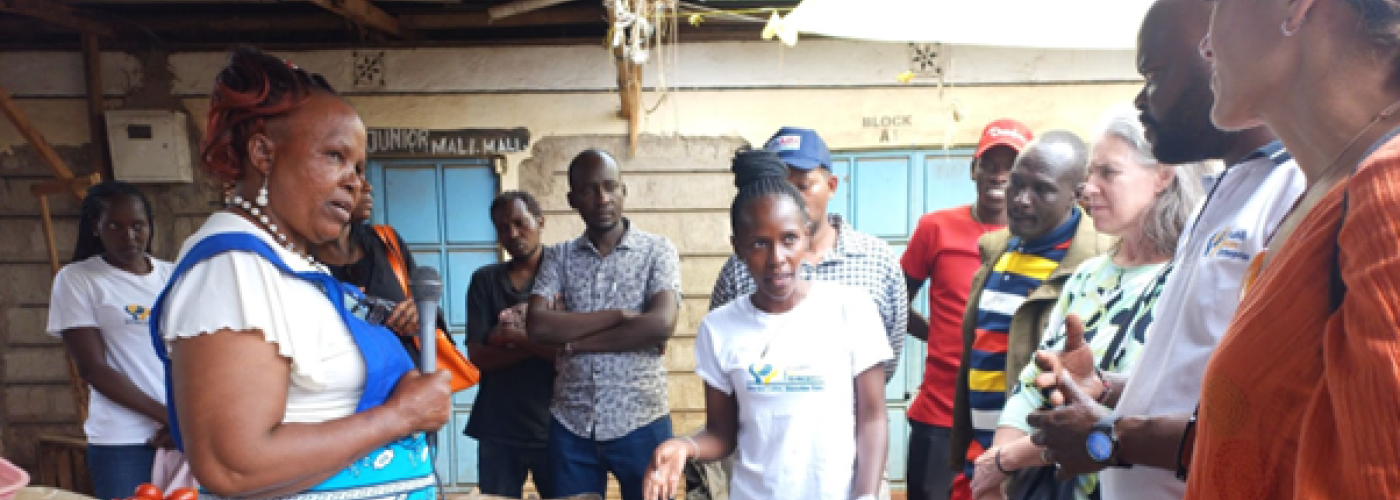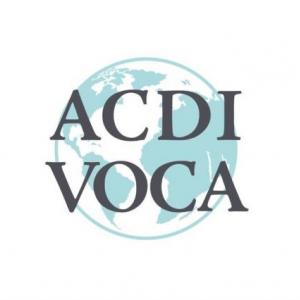The Impact for Northern Kenya Fund: A Pathway to Financial Freedom for Northern Kenya’s Entrepreneurs
Image

This post was authored by Wyanie Bright, ACDI/VOCA's Chief of Party for USAID Kuza.
Persistent drought and other climatic shocks are impacting communities and their livelihoods in Kenya's arid and semi-arid lands, highlighting the need for diversified sources of income. Charity Gatei is a mama mboga, or vegetable seller, in Isiolo, an area of Northern Kenya highly affected by the ongoing drought. Like many women there, Gatei started selling vegetables to diversify her family’s income outside of livestock production. Gatei needs money to buy wholesale vegetables to resell in the vegetable market. Unfortunately, that money isn’t always there. When faced with liquidity shortages, she, like most mama mbogas, utilizes expensive, short-term loans from loan sharks in the market.
To address this problem and increase access to finance, USAID Kuza, implemented by ACDI/VOCA, developed the Impact for Northern Kenya Fund LLC (“the Fund”), a $14 million impact investing vehicle that lends catalytic capital to financial institutions for on-lending to micro, small and medium enterprises in Northern Kenya.
Among its many accomplishments, the Fund made two loans totaling $3.25 million to Fadhili Micro Enterprises Limited. Fadhili is a microfinance institution that uses the Grameen Model of group guarantees, instead of collateral, to make micro-loans to entrepreneurs and farmers. After receiving the loans from the Fund, Fadhili established branches in Tana River, Lamu, Isiolo, Garissa, West Pokot, and Turkana counties and added over 7,000 clients, 81 percent of whom are women.
Fadhili’s typical client is a mama mboga like Gatei, who uses the capital for the wholesale purchase of vegetables from farmers and to employ boda bodas, or motorcyclists, to transport produce from local farms to the markets. Across Isiolo County, Fadhili has financed over 1,000 such women. Through these loans, Fadhili creates income generation and employment opportunities and supports increased household food security in the face of the negative impacts of climate change.
In 2021, Gatei joined a Fadhili guarantee group composed of five mama mbogas in the Isiolo Vegetable Market. In these groups, the women work together to ensure good business practices and timely loan repayment. After taking a Fadhili financial literacy course, Gatei received her first loan of 20,000 Kenya shillings (approximately $160). She used the capital for the wholesale purchase of tomatoes, onions, legumes, and grains as well as for paying market fees and transport costs. She repaid her first loan within the three-month window and has subsequently received four additional loans totaling 90,000 Kenyan shillings (approximately $717). Her past loans have been fully repaid and her current loan is in good standing.
On average, Gatei realizes a daily profit of 1,000 Kenyan shillings (approximately $8), in a region where 68 percent of the population earn less than $2.15 per day, according to the World Bank. Further, with her newly developed credit history, Gatei has also qualified for a Fadhili’s School Fees Loan, which will allow her to spread the costs of her children’s tuition over a 12-month period.


